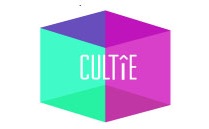WHAT IS SINGULARITY?
Futurists theorize that rapidly accelerating advances in human technology, merging with the powers of human consciousness, will send us into an unimaginable world of super-intelligence. That’s singularity.
But two camps are watching the evolutionary convergence with different core assumptions. At a recent Evolver event at Tammany Hall in New York City Daniel Pinchbeck and Jason Silva engaged in a lively conversation about singularity. They agreed that we humans are in for some amazing leaps in technology and consciousness, but they inevitably highlighted how different their visons actually are.
Daniel Pinchbeck is the author of Breaking Open the Head and Quetzalquatl 2012. Pinchbeck has a spiritual perspective and a futurist’s vision guided by philosophy and traditional spiritual practices like shamanism. He’s one of the founders of web magazine Reality Sandwich, and its complementary social network Evolver.
Jason Silva, formerly at Al Gore’s Current TV, now hosts National Geographic show Brain Games. He’s a new media artist who creates inspirational, and very viral, videos that highlight the convergence of human evolution and rapidly advancing technology. I first saw one of his inspirational video performances as part of a TED talk. Silva’s brand of futurism is positive about where humans are headed, giving occasional shout-outs to genetic engineering, and maintaining the faith that technology can solve technology.
I’ll come right out and say I align more with Pinchbeck’s spiritual perspective, yet I appreciate the exploratory spunk of the more mainstream—and apparently materialist—Silva. Pinchbeck has studied spiritual practices of global cultures and visited with traditional shamans and healers worldwide. He has occult interests but is pragmatic, mainly looking for systems that can really work for people today.
Silva shared one of his major influences, Ernest Becker’s The Denial of Death, a book that appears in Woody Allen’s film Annie Hall, when the death-obsessed character Alvy Singer gives it to his girlfriend as a gift. Becker’s book postulates that most human endeavors, and civilization itself, are attempts to create systems that transcend death, fueled by the concept of heroism. Such attempts are called immortality projects, religions a perfect example.
According to Becker, many of the world’s problems and conflicts derive from competing immortality projects—competing philosophies, religions, world views, or national pursuits of conquest. Problematically, in the Age of Reason, traditional religion is no longer satisfactory immortality project. We don’t buy it anymore. Silva portrayed The Denial of Death as an affirmation of the materialist perspective, which I’m not sure it is.
Ironically, Silva’s own theories of convergence appear as a sort of exterior hero-system where technology and evolution save humanity, while Pinchbeck’s “immortality project” is much more internal.
Pinchbeck discussed reincarnation and the cosmology of the 19th-century spiritualist Rudolph Steiner. While he got into the most occult aspects of Steiner’s admittedly strange philosophy, a young guy passed out behind me, distracting the crowd with his own—probably alcohol induced—out of body experience.
In response to Silva’s inference that technology may one day facilitate a sort of physical immortality, Pinchbeck expressed disturbance at the desire for carnal extension so many imaginative materialists display.
Pinchbeck asked the crowd, “How many people want to be (physically) immortal.” About ten raised their hands.
“How many people think they’re already (spiritually) immortal?” he asked. About the same amount raised their hands.
“I wish I could believe I was immortal,” Jason Silva said, blushing a bit in recognition that there were two different camps—materialist and spiritually inclined—in the room.
The discussion culminated when Jason Silva proposed a future reality as weird as any religious mythology. In response to an audience member’s question about raising consciousness with technology, Silva described a world where technology controls atoms, altering their state from particle to wave phase. Applying the technology to our own atoms, we would disconnected from our current version of reality, our minds melding with technology as we “enter the matrix”. Silva’s visionary climax portrayed the materialist’s version of enlightenment. He described total technological manipulation of physical matter leading the to an almost-spiritual reality.
As wild as Silva’s postulated world of techno-enlightenment was, Pinchbeck assured us it wasn’t that out there. “Sounds like some of my Ayuasca experiences,” he said.
In affirmation, an audience member opined that we have had the ability to experience such “virtual realities” for centuries—within Hindu, Buddhist, and traditional shamanic practices.
Silva’s vision of reality is beautiful. He sees the grand orchestra of stars and planets. He sees humans as instruments of an amazing process of evolution. Unfortunately, as magical as the world looks to him, it has no soul.
Jason Silva’s enthusiasm was a great balance to Daniel Pinchbeck’s curmudgeonly presence, symptomatic of a misunderstood mystic. Silva’s youthful rapture is charming and contagious. However his vision is decidedly exterior, all yang and no yin. No matter how small the particle, how micro the understanding, how exponential the processing power, how accelerated the human evolution— it’s all exterior.
But it seems the two sides of this (perhaps unintended) debate are headed straight towards each other. Indeed, enthusiastic materialists and matter of fact spiritualists might have something to learn from each other…as they battle for control of the future universe!


